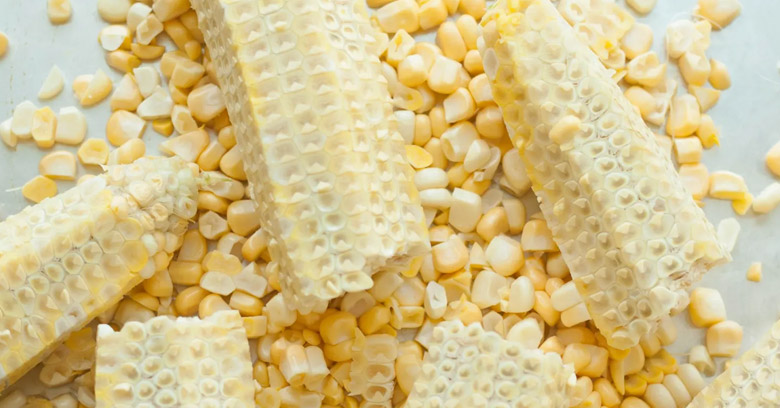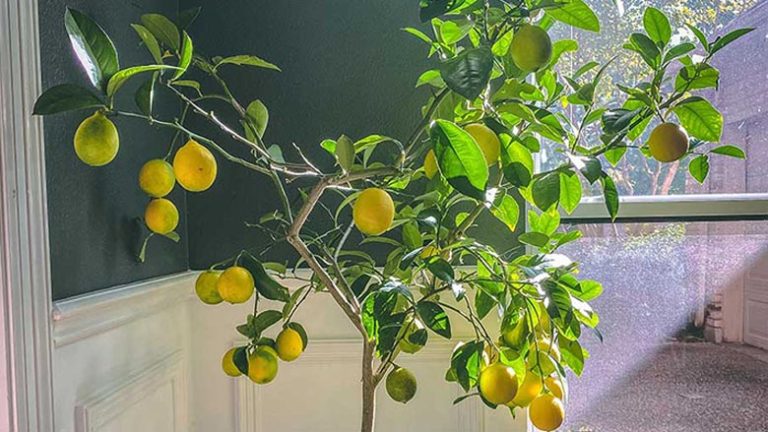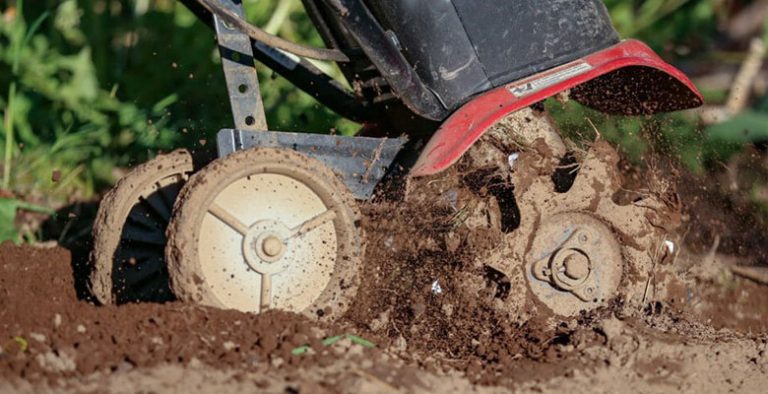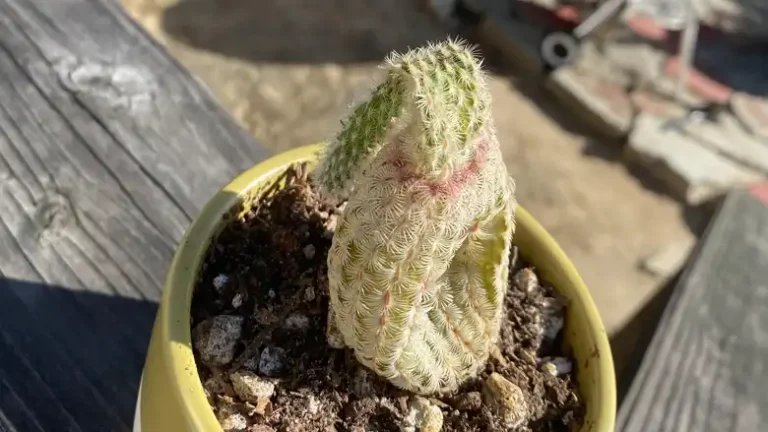Can I Compost Corn Cobs | Composting Process and Tips
Yes, you can compost corn cobs. Corn cobs can be added to your compost pile as they are a great source of carbon.
Composting corn cobs helps to break down the material, turning it into nutrient-rich organic matter that can be used in your garden. When adding corn cobs to your compost pile, it is important to break them into smaller pieces to help speed up the decomposition process.
Remember to mix them with other compostable materials such as green waste, food scraps, and yard trimmings to maintain a balanced carbon-to-nitrogen ratio. Composting corn cobs is an eco-friendly way to reduce waste and improve the quality of your soil.

Composting Basics
What Is Composting?
Composting is a natural process that transforms organic waste into a nutrient-rich material called compost. It is a sustainable and eco-friendly way to reduce waste and create a valuable resource for gardening and farming. Composting is often done at home or on a larger scale in composting facilities.
How Does Composting Work?
Composting involves the breakdown of organic materials through the activity of microorganisms such as bacteria, fungi, and other decomposers. These microorganisms break down the organic matter into simpler compounds, resulting in the formation of compost.
The composting process requires the right balance of four essential components:
- Carbon-rich materials such as dried leaves, straw, and shredded paper provide energy for the microorganisms. They help create the structure and stability of the compost pile.
- Nitrogen-rich materials such as food scraps, grass clippings, and manure provide the necessary nutrients for the microorganisms to thrive and decompose the organic matter.
- Moisture is essential for the microorganisms to carry out their work effectively. Compost piles should be kept moist, similar to a damp sponge.
- Aeration ensures sufficient oxygen is available for the microorganisms. Regularly turning or mixing the compost pile helps maintain proper airflow.
Understanding The Composting Process
The composting process occurs in several stages, each with its unique characteristics and requirements. Understanding these stages can help optimize the composting process:
- Mesophilic stage: This initial stage involves the decomposition of easily biodegradable materials. The microorganisms break down sugars, proteins, and other organic compounds, generating heat as a byproduct. The optimal temperature for this stage is around 68-113°f (20-45°c).
- Thermophilic stage: In this phase, the compost pile heats up even further, reaching temperatures between 113-160°f (45-70°c). The high temperatures kill pathogens and weed seeds present in the compost pile.
- Curing/maturation stage: Once the thermophilic stage is complete, the compost undergoes a maturation process. During this stage, the compost cools down, and the remaining organic materials further decompose and stabilize. The compost develops a dark, crumbly texture and a pleasant earthy smell.
Composting Corn Cobs
Are Corn Cobs Compostable?
Yes, corn cobs are absolutely compostable. Composting corn cobs not only helps reduce waste but also provides a valuable source of nutrients for your garden soil. If you are wondering why corn cobs are suitable for composting, keep reading!
Why Corn Cobs Are Suitable For Composting
Composting corn cobs offers several benefits, making them an ideal addition to your compost pile. Here’s why:
- High carbon content: Corn cobs are rich in carbon, similar to other dry and brown organic materials like leaves or straw. Their high carbon content makes them perfect for balancing the nitrogen-rich materials in your compost pile, such as kitchen scraps or grass clippings.
- Slow decomposition: Corn cobs take longer to break down compared to other compostable materials. This slows down the decomposition process in your compost pile, providing a longer-lasting and more consistent supply of nutrients for your plants.
- Nutrient-rich: While corn cobs might take longer to decompose, they are still a valuable source of nutrients for your compost. As they break down, corn cobs release essential elements like potassium and phosphorus, which promote healthy plant growth.
- Versatile usage: Once fully decomposed, composted corn cobs become a nutrient-rich amendment that can be used in various ways. You can mix it into garden beds, use it as a top dressing, or blend it with potting soil for container plants.
Best Practices For Composting Corn Cobs
To ensure successful composting of corn cobs, it’s important to follow these best practices:
- Break them down: Corn cobs are quite large and dense, so it’s recommended to break them into smaller pieces before adding them to your compost pile. This will accelerate the decomposition process and make it easier for microorganisms to break them down.
- Mix with other materials: To maintain a balanced compost pile, mix shredded corn cobs with other organic materials, such as green waste, kitchen scraps, or grass clippings. This will provide a diverse range of nutrients and help speed up decomposition.
- Maintain moisture and aeration: Keep your compost pile moist, but not overly wet. Moisture promotes decomposition, while excessive moisture can lead to unpleasant odors and hinder the breakdown of materials. Turning the compost regularly will also ensure proper aeration for the microorganisms responsible for decomposition.
- Patience is key: As mentioned earlier, corn cobs take longer to decompose. It’s essential to be patient and allow sufficient time for them to break down fully. It may take several months or even a year, depending on various factors like temperature and moisture levels.
Composting Process
When it comes to composting corn cobs, understanding the composting process is crucial. Composting is a natural way to transform organic waste into nutrient-rich soil that can be used in gardens and plant beds. Whether you have a large-scale composting system or a small backyard pile, here are some key points to consider when composting corn cobs:
Preparing Corn Cobs For Composting
- Remove any kernels left on the corn cobs, as they can take longer to break down and attract pests.
- Break the corn cobs into smaller pieces to speed up the decomposition process.
- Shredding or grinding the corn cobs can further accelerate the breakdown.
Adding Corn Cobs To The Compost Pile
- Corn cobs are considered “brown” or carbon-rich materials, which help balance the carbon-to-nitrogen ratio in the compost pile.
- Mix the corn cobs with “green” or nitrogen-rich materials, such as kitchen scraps or grass clippings, to provide a well-balanced compost environment.
Balancing Carbon And Nitrogen Ratios
- Aim for a ratio of 30 parts carbon to 1 part nitrogen to promote efficient decomposition.
- Corn cobs contribute to the carbon component of the compost pile, so ensure you have enough nitrogen-rich materials to balance it out.
- Consider adding materials like vegetable scraps, coffee grounds, or fresh grass clippings to maintain the proper ratio.
Maintaining Moisture Levels In The Compost Pile
- It’s essential to keep the compost pile moist but not overly wet.
- Water the compost pile regularly to maintain moisture levels similar to that of a wrung-out sponge.
- Dry corn cobs can absorb moisture from the pile, so be mindful of the moisture content and adjust accordingly.
Composting Troubleshooting
When it comes to composting corn cobs, there are a few common issues that you might encounter. Below are some of the challenges you might face and how to resolve them:
- Slow decomposition: Corn cobs can take a long time to break down because they are high in lignin, a tough plant material. This can slow down the overall composting process.
- Rodent problems: Corn cobs can attract rodents due to their enticing smell and texture. This can be a common issue, especially if you have a large amount of corn cobs in your compost pile.
- Imbalance in carbon and nitrogen: Corn cobs are considered a high-carbon compost material. If you’re not balancing them correctly with nitrogen-rich materials, like grass clippings or kitchen scraps, it can result in a lack of decomposition.
How To Resolve Common Composting Problems
To resolve the common composting problems associated with corn cobs, you can follow these tips:
- Chop or shred corn cobs: Breaking down the corn cobs into smaller pieces before adding them to the compost pile can speed up the decomposition process. Using a wood chipper or shredder is recommended.
- Mix with nitrogen-rich materials: To balance the carbon content of corn cobs, add nitrogen-rich materials such as grass clippings, vegetable scraps, or coffee grounds. This will create a better environment for decomposition.
- Avoid adding too many corn cobs at once: Adding a large amount of corn cobs all at once can overwhelm your compost pile. It’s best to add them gradually, mixing them well with other compost materials.
Tips For Troubleshooting Composting Difficulties
Here are some additional tips to troubleshoot any difficulties you may face when composting corn cobs:
- Monitor moisture levels: Corn cobs need moisture for decomposition, so it’s important to ensure that your compost pile is damp but not soggy. If it’s too dry, add water. If it’s too wet, mix in dry organic matter like leaves or shredded paper.
- Provide aeration: Regularly turning your compost pile or using a compost aerator can help provide oxygen to the microorganisms responsible for decomposition. This will help speed up the breakdown of corn cobs.
- Use compost activators: Adding compost activators such as finished compost or commercial products can introduce beneficial bacteria and fungi to your compost pile. This can help accelerate the decomposition of corn cobs.
Composting Tips And Tricks
To effectively compost corn cobs, it is important to layer them properly within your compost pile or bin. This will help enhance the decomposition process and ensure that the corn cobs break down effectively. Here are some tips to consider:
- Start by creating a base layer of compostable materials such as leaves, grass clippings, or vegetable scraps.
- Add a layer of corn cobs on top of the base layer. It is recommended to break them up into smaller pieces to speed up the decomposition process.
- Alternate layers of corn cobs with nitrogen-rich materials such as grass clippings or kitchen scraps. This will balance the carbon-to-nitrogen ratio and provide the necessary nutrients for microbial activity.
- Make sure each layer is moist by lightly watering it. This will help create the ideal environment for decomposition.
Accelerating Composting Process With Additives
If you want to speed up the composting process for your corn cobs, you can consider using additives. These additives can help to break down the corn cobs more quickly, resulting in faster compost production. Here are a few options you can try:
- Compost activators: These are products that introduce beneficial bacteria and fungi to your compost pile. They help to jumpstart the decomposition process and break down the corn cobs faster. Look for compost activators that are specifically designed for woody materials like corn cobs.
- Organic matter: Adding additional sources of organic matter to your compost pile can help to accelerate the decomposition of corn cobs. Consider including materials such as shredded newspaper, coffee grounds, or fruit and vegetable peels.
- Worms: Introducing composting worms, such as red wigglers, to your compost pile can greatly increase decomposition rates. These worms help to break down the corn cobs by consuming the organic material and excreting nutrient-rich castings.
By incorporating these additives into your composting process, you can speed up the decomposition of corn cobs and produce nutrient-rich compost more quickly.
Utilizing Composting Bins Or Tumblers For Corn Cobs
Using composting bins or tumblers specifically designed for corn cobs can provide a convenient and efficient way to compost these materials. Here are a few reasons why using composting bins or tumblers for corn cobs can be beneficial:
- Controlled environment: Composting bins or tumblers provide a controlled environment for composting corn cobs. They help to retain heat and moisture, which are essential for efficient decomposition.
- Easy turning: Composting bins or tumblers are designed to be easily turned or rotated. This helps to aerate the compost pile, promoting microbial activity and faster decomposition of corn cobs.
- Pest prevention: Composting bins or tumblers offer protection against pests such as rodents or raccoons that may be attracted to decomposing corn cobs. They help to contain the composting materials and reduce the likelihood of pest infestation.
- Neater appearance: Using composting bins or tumblers can help keep your composting area tidy and organized. It prevents corn cobs from scattering around and makes it easier to manage the composting process.
Using Composted Corn Cobs
Composted corn cobs can be a valuable addition to your gardening routine. They not only help nourish and enrich the soil but also offer several benefits to your plants. In this section, we will explore the benefits of using compost in gardens, how to apply it to different types of plants, and how to properly use composted corn cobs in gardening.
Benefits Of Using Compost In Gardens
- Improves soil structure: Compost helps improve the structure of your soil, making it easier for plant roots to penetrate and access nutrients.
- Enhances water retention: The organic matter in compost helps the soil retain moisture, reducing the need for frequent watering.
- Provides essential nutrients: Compost is rich in nutrients, including nitrogen, phosphorus, and potassium, which are essential for plant growth and health.
- Supports beneficial microorganisms: Compost promotes the growth of beneficial microorganisms in the soil, which aid in nutrient cycling and disease suppression.
- Reduces the need for synthetic fertilizers: By using compost, you can reduce your reliance on synthetic fertilizers, which can be harmful to the environment.
Applying Compost To Different Types Of Plants
- Vegetables and herbs: When using compost on vegetables and herbs, mix it into the soil before planting or apply it as a top dressing around existing plants. This will provide a steady release of nutrients throughout the growing season.
- Flowers: For flowers, incorporate compost into the soil at planting time or use it as a mulch around established plants. The nutrients in the compost will support vibrant blooms.
- Fruit trees and shrubs: Apply compost around the base of fruit trees and shrubs, making sure to keep it away from the trunk or stems. This will nourish the roots and improve overall tree or shrub health.
- Lawns: When applying compost to lawns, spread a thin layer over the grass and lightly rake it in. This will help improve soil health and enhance the growth of your lawn.
Properly Using Composted Corn Cobs In Gardening
- Composting corn cobs: Before using corn cobs in your garden, it’s important to compost them properly. Shred or chop the cobs into smaller pieces to help speed up the decomposition process.
- Adding composted corn cobs to soil: Mix the composted corn cobs into the soil before planting or use them as a mulch around existing plants. The decomposed cobs will replenish the soil and provide nutrients to your plants.
- Balancing compost ratios: It’s essential to balance the use of composted corn cobs with other types of compost or organic matter. Corn cobs alone may not provide all the necessary nutrients, so it’s recommended to mix them with other compost materials to achieve a balanced blend.
- Monitoring soil moisture: As composted corn cobs have a high carbon content, they may absorb water from the soil. Monitor the soil moisture levels and adjust watering accordingly to ensure your plants are adequately hydrated.
Frequently Asked Questions For Can I Compost Corn Cobs
Q1: Can corn cobs be composted?
A1: Yes, corn cobs can be composted. They are a natural material and will break down in a compost pile.
Q2: Can I put whole corn cobs in my compost bin?
A2: While you can compost whole corn cobs, it’s recommended to cut them into smaller pieces to help them decompose more quickly.
Q3: How long does it take for corn cobs to compost?
A3: Corn cobs can take anywhere from 6 months to 2 years to fully compost, depending on factors like temperature, moisture, and the size of the pieces.
Q4: Can I compost corn cobs in a small backyard compost bin?
A4: Yes, you can compost corn cobs in a small backyard compost bin. Just be sure to cut them into smaller pieces and mix them well with other compostable materials.
Q5: Are corn cobs considered “brown” or “green” compost material?
A5: Corn cobs are considered “brown” compost material, providing carbon-rich content to your compost pile.
Q6: Can I speed up the composting process for corn cobs?
A6: Yes, you can speed up the composting process by shredding or chopping the corn cobs into smaller pieces, turning the compost pile regularly, and maintaining the right balance of green and brown materials.
Q7: Can I compost corn cobs in a worm bin?
A7: Yes, corn cobs can be added to a worm bin, but they should be chopped into smaller pieces to make it easier for the worms to break them down.
Q8: What should I do if corn cobs are taking too long to compost?
A8: If corn cobs are taking a long time to compost, you can try chopping them into smaller pieces, turning the compost more frequently, and adjusting the overall compost mixture for better balance.
Q9: Can I use composted corn cobs in my garden?
A9: Absolutely! Composted corn cobs make excellent nutrient-rich soil amendments for your garden.
Q10: Are there any types of corn cobs that should not be composted?
A10: It’s best to avoid composting corn cobs from genetically modified (GM) or treated corn, as well as those that have been heavily coated with oils or seasonings.
Conclusion
Corn cobs are a fantastic addition to your compost pile. Not only are they biodegradable and environmentally friendly, but they also provide essential nutrients to your compost. Their high carbon content helps to balance out nitrogen-rich materials, creating an optimal environment for decomposition.
By adding corn cobs to your compost, you can divert waste from the landfill and create nutrient-rich soil for your garden. Remember to chop or shred the corn cobs into smaller pieces to speed up the composting process. Whether you have a backyard compost bin or are part of a larger composting initiative, composting corn cobs is a great way to reduce waste and contribute to a healthier planet.
Start composting your corn cobs today and make a positive impact on the environment.
![Why Is My Bonsai Turning Yellow [8 Possible Causes]](https://gardensuggest.com/wp-content/uploads/2023/09/Why-Is-My-Bonsai-Turning-Yellow-768x432.webp)
![[Answered] Can You Bury Cucumber Stems?](https://gardensuggest.com/wp-content/uploads/2023/07/can-you-bury-cucumber-stems-768x576.jpg)
![Can You Plant in the Rain [Answered & Explained]](https://gardensuggest.com/wp-content/uploads/2023/08/Can-You-Plant-in-the-Rain-768x394.jpg)


